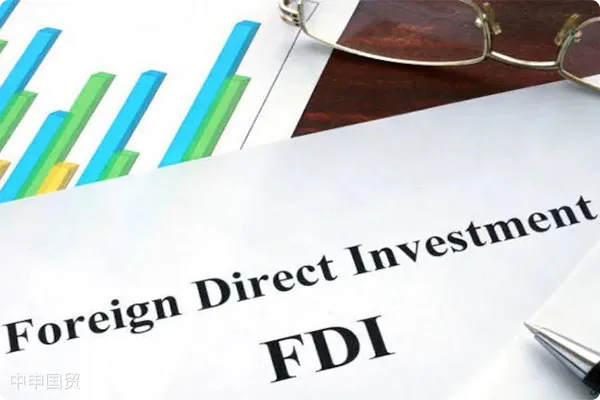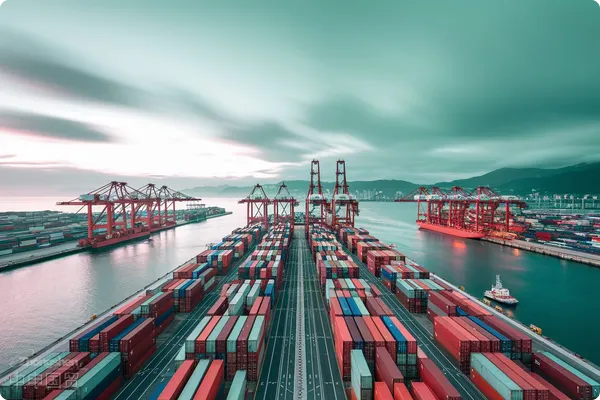- Shanghai Zhongshen International Trade Co., Ltd. - Two decades of trade agency expertise.
- Service Hotline: 139 1787 2118
As global economic integration deepens, countries, particularly major developed ones, are increasingly scrutinizing foreign direct investment (FDI). This trend has become especially pronounced amid the COVID-19 pandemic and geopolitical conflicts. This article delves into the underlying reasons behind this trend and how it is reshaping our world. Below is an analysis of the latest developments and trends in FDI scrutiny among major developed countries.

Motivations for Enhanced FDI Scrutiny
National Security Concerns
National security is the most direct and important factor driving the strengthening of foreign investment review systems. With technological advancements and the internationalization of economic activities, foreign investments have penetrated multiple critical sectors of nations, including defense, energy, telecommunications, and infrastructure. The security of these sectors is directly linked to national sovereignty and public safety. For instance, the increased intensity and scope of reviews by the U.S. CFIUS aim to protect American critical technologies from foreign control, especially those with potential military applications.
Sensitivity Toward Investments from Specific Countries, Particularly China
In recent years, investments from China have drawn widespread attention and scrutiny globally due to their scale and nature (many are perceived as government-backed). Many countries worry that Chinese investments may serve as tools to expand political and economic influence, particularly in critical technology and infrastructure sectors. For example, following the 2016 acquisition of KUKA by Chinas Midea Group, Germany began tightening reviews of foreign investments in key technology sectors. The German government feared the deal could lead to the outflow of critical robotics technology, posing a threat to national economic security.
The Need to Protect Critical Technologies and Data
In the digital economy era, data and technology have become pivotal to national competitiveness. Acquisitions of domestic high-tech firms by foreign investors may result in the outflow of sensitive technologies and data. Thus, developed countries use foreign investment reviews to safeguard these critical resources, ensuring they are not controlled by potential rival nations. For example, the U.S. passed the FIRRMA Act in 2018, explicitly reviewing investments in critical technologies to prevent the erosion of American technological advantages. Similarly, the EU and Australia have strengthened legal oversight of foreign investments involving sensitive data processing and personal privacy protection.
The Impact of Geopolitics
Changes in the geopolitical landscape are also a significant factor prompting nations to tighten foreign investment reviews. For instance, amid the U.S.-China trade and tech wars, the U.S. has become particularly vigilant toward Chinese investments, intensifying reviews of Chinese involvement in high-tech and infrastructure sectors. Additionally, following the Russia-Ukraine conflict, Europe reassessed its investment policies toward Russia, strengthening reviews of foreign investments in critical sectors like energy.
Considerations of Public Order and Health Security
After the COVID-19 outbreak, many countries worldwide tightened foreign investment reviews in healthcare and public health-related sectors. Governments recognized that control over medical supply chains is crucial to national security during crises. For example, Australia and Canada implemented special foreign investment review measures during the pandemic to prevent the outflow of medical resources and technologies during critical periods.
II. Evolution and Practice of Review Systems
Legislative and Policy Adjustments
Many countries have responded to foreign investment challenges by amending existing laws or introducing new legislation. For instance, the UK passed the National Security and Investment Act (NSI), strengthening foreign investment reviews, particularly in sectors related to national security.
Increase in Review Cases
With the refinement of review mechanisms, the number of review cases has risen significantly. According to recent statistics, review activities in the EU, U.S., and other major economies have surged in recent years.
Expansion of Review Scope
Beyond traditional defense and critical infrastructure, foreign investment reviews now cover emerging sectors like high-tech, data security, and public health. For example, Germany has extended its foreign investment reviews to include critical industries such as biotechnology.Medical EquipmentEvaluation of Review Effectiveness
III. Review Effectiveness and International Cooperation
While strengthened reviews can protect national security and economic interests to some extent, they may also have unintended consequences, such as discouraging foreign direct investment (FDI). Countries must strike a balance between safeguarding national interests and promoting economic openness.
International Cooperation and Conflict
As nations adopt stricter stances on foreign investment reviews, differences in review standards and methods may lead to conflicts. International cooperation, particularly in establishing common standards and procedures, has become increasingly important.
Future Trends
It is expected that countries will continue to strengthen foreign investment review mechanisms, especially in high-tech and data-driven industries. Investments from rival nations, such as China and Russia, will face heightened scrutiny.
In summary, major developed countries are trending toward more stringent and detailed foreign investment reviews, reflecting the complex interplay between national security, economic interests, and international cooperation in the context of globalization. Staying informed about developments in this field is crucial for all participants in global trade.
Foreign Direct Investment (FDI)
Related Recommendations
? 2025. All Rights Reserved. 滬ICP備2023007705號-2  PSB Record: Shanghai No.31011502009912
PSB Record: Shanghai No.31011502009912










